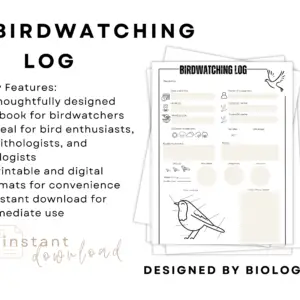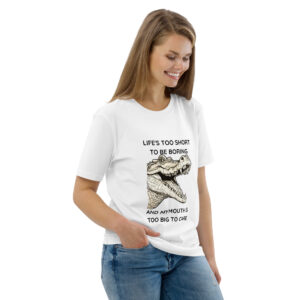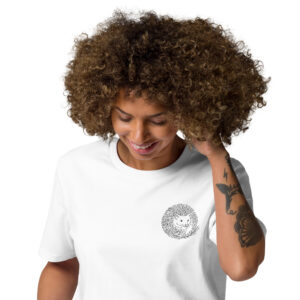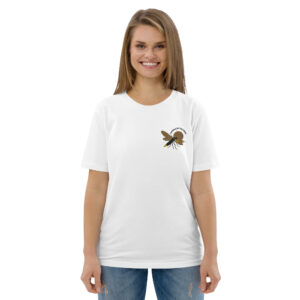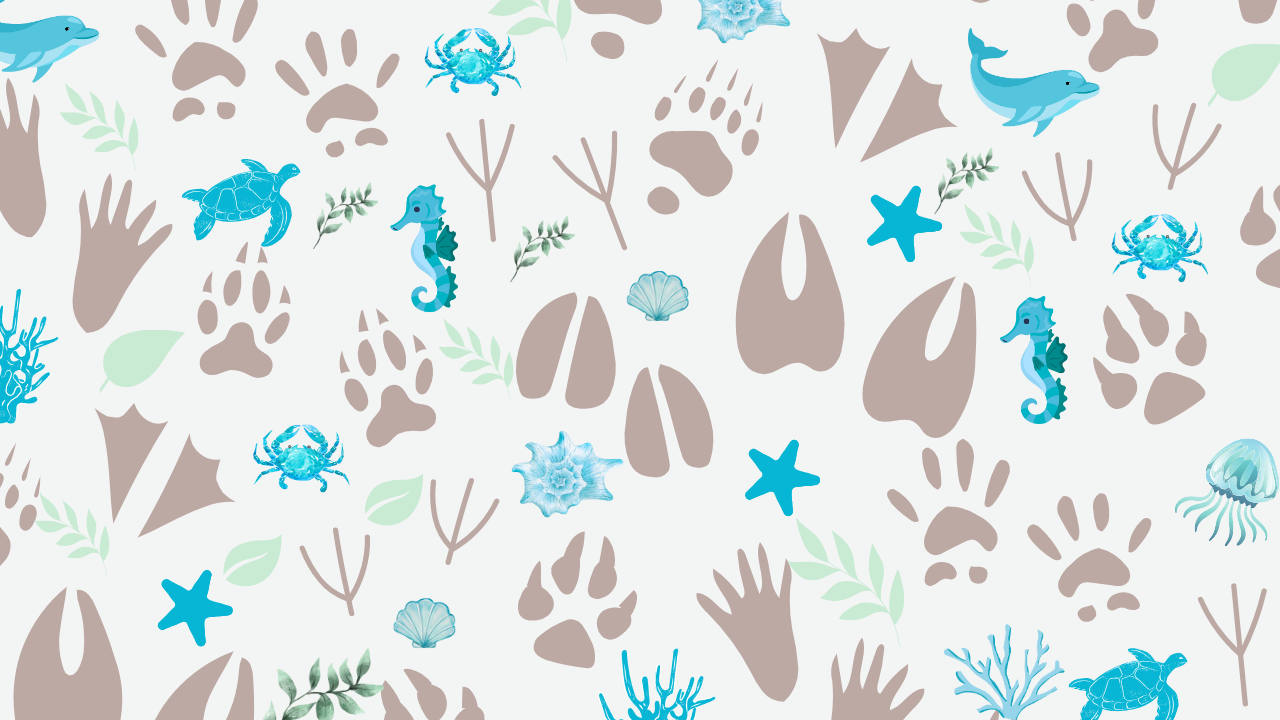
WILDLIFE
Discovering Wildlife: Where Curiosity Meets Science
Explore the fascinating world of wildlife, where conservation efforts and preservation initiatives strive to protect endangered species and maintain ecosystem balance. Delve into the realm of wildlife biology, zoology, ecology, and environmental science to comprehend the intricacies of biodiversity.
Discover the importance of wildlife reserves, national parks, and sanctuaries in providing a safe haven for animals. Learn about animal welfare, rehabilitation, and research initiatives that focus on the well-being of creatures.
Get inspired by wildlife tourism, eco-tourism, and sustainable tourism practices that promote responsible travel. Enjoy stunning wildlife photography, art, and documentaries that showcase the beauty of nature.
Stay updated on the latest wildlife news and get involved with conservation organizations, charities, and volunteering opportunities. Pursue a career or internship in wildlife management, and find jobs that make a difference.
MAMMALS
Mammals, a diverse group of warm-blooded animals, belong to the vertebrate class and are characterized by the presence of hair, three middle ear bones, and the production of milk for their young. They encompass a wide range of species, from placental mammals, such as humans and other primates, to marsupials, like kangaroos and opossums, and monotremes, including the egg-laying platypus.
Within this category, carnivores, like lions and tigers, feed on meat, while omnivores, such as bears and pigs, consume both plants and animals. Herbivores, including cows and deer, primarily feed on plants. Many mammals are terrestrial animals, inhabiting a variety of ecosystems, from forests to grasslands, while others, like whales and dolphins, are marine mammals, thriving in the world’s oceans.
The mammalian class is incredibly diverse, with over 5,000 species, ranging from the tiny bumblebee bat to the massive blue whale. Primates, rodents, and other mammalian groups exhibit unique characteristics, adaptations, and behaviors, underscoring the complexity and richness of animal classification in zoology.
As an integral part of wildlife and fauna, mammals play vital roles in maintaining ecosystem balance and biodiversity. By exploring and learning about these fascinating creatures, we can better appreciate the intricate relationships within ecosystems and work towards preserving the natural world.
Latest Posts on Mammals
- Quokka Baby Development
- Sloth Bear Behavior
- Baby Elephant Facts
- Bornean Orangutan Lifespan
- How Do Polar Bears Adapt to the Arctic?
- Giraffe Neck Vertebrae Explained
- How Are Bison Grassland Ecosystems Unique?
- What Affects Panda Bamboo Consumption?
- Hyena Clan Dynamics
- Meerkat Sentinel Behavior
- Gazelle Stotting Behavior
- Sloth Sleeping Habits
- Jaguar Hunting Explained
- Everything You Should Know About Leopard Spots
- Understanding Bear Hibernation
- Interesting Tiger Facts
- Gorilla Strength
- The Truth About Hippo Aggression
- Orangutan Intelligence: How These Primates Outsmart Their Jungle Neighbors
- Exploring the Impressive Size of Hippo Teeth
- Ivory Giants: 10 Fascinating Facts About Elephant Tusks
- Decoding the Complex Structure of Lion Prides
- Quokka Mating Habits
- How Strong Are Lions? (Lion Strength Revealed)
- What Are The Lion Adaptations? (Physical and Behavioral)
- Cutest Foxes EVER!
- Are Sun Bears Dangerous? Do Sun Bears Attack Humans?
- Are Cheetahs Dangerous? Do Cheetahs Attack Humans?
- Do Bears Eat Humans? 3 Reasons Why Bears Attack
- Top 5 Deadliest and Most Dangerous Big Cats in the World
BIRDS
Explore the fascinating world of birds, where over 10,000 bird species thrive in diverse bird habitats, showcasing their unique bird feathers, bird wings, and bird beaks. Delve into the realm of bird behavior, from bird migration patterns to bird breeding and bird mating, and discover the intricate details of bird nests, bird eggs, and bird chicks.
Uncover the secrets of bird identification with our comprehensive bird identification guide, featuring a bird species list that spans across the globe. Learn to distinguish between bird calls and bird songs, and master the art of bird watching with our expert tips on birding tours.
Attract these magnificent creatures to your backyard with bird feeders, bird baths, and bird houses, and observe their fascinating bird behavior up close. Capture the beauty of birds through bird photography, and explore the importance of bird conservation efforts.
From birds of prey to migratory patterns, our bird category is a treasure trove of information for enthusiasts and experts alike.
Latest Posts on Birds
- 13 Stunning Black and Red Birds (With Pictures)
- 13 Amazing Water Diving Birds (With Pictures)
- Are Peacocks Dangerous? 4 Reasons …
- Top 8 Strongest Birds in the World (With Pictures)
- Birds That Run FAST (List of Top 10 Running Birds)
- White Flamingos: All You Need to Know (Pictures & Facts)
- Unique Small Birds With Long Beaks (Pictures & Facts)
- Stunning Blue and Yellow Birds (With Pictures)
- Are Ostriches Dangerous? (YES! 4 Main Reasons Why)
- How Long Do Geese Live? Domestic & Wild Geese
- How Much Weight Can An Eagle Carry?
- Can You Have a Pet Falcon? The Laws & Rules of Falconry
- Why Would A Goose Be Alone?
- Meet the Penguins With Yellow Hair: Most Stylish Birds
- Do Penguins Have Knees? A Deep Dive Into Penguin Physiology
- Biology of Birds
- Black Birds With Yellow Beaks
- White Fluffy Birds
- Breeds of Eagles
- What Is A Group Of Ducks Called?.
- What Do Eagles Eat?
- Owls In Virginia
- Owls In Florida: Species Identification, Facts, Pictures
- 9 Owls In France
- Owls In Illinois
- Owls In Missouri: Species Identification and Facts
- What Are Ducks’ Feet Called?
- Can Seagulls Swim?
- Fastest Flying Birds
- Fastest Birds in the World (In The Sky, Land, & Water)
REPTILES
Reptiles are a diverse group of species that inhabit various ecosystems around the world, from scorching deserts to lush rainforests. As a cornerstone of wildlife conservation, understanding reptile ecology, behavior, and adaptations is crucial for their preservation.
Reptile research has shed light on the intricate relationships between species and their habitats, highlighting the importance of protecting reptile habitats to ensure the long-term survival of these creatures. Furthermore, studying reptile evolution, diversity, and biology provides valuable insights into the complex interactions within ecosystems.
Many reptile species are facing threats to their survival, with endangered and threatened reptiles in dire need of conservation efforts. Habitat destruction, climate change, and human activities have led to population decline, migration disruptions, and hibernation disturbances, ultimately affecting reptile mating, reproduction, and development.
Effective reptile wildlife conservation requires a deep understanding of reptile growth, longevity, and mortality rates, as well as the impact of extinction on ecosystems. Conservation efforts, protection, and preservation strategies are essential to prevent the loss of reptile species and maintain the delicate balance of ecosystems.
This category delves into the fascinating world of reptiles, exploring their biology, ecology, and conservation, with a focus on wild reptiles, reptile species, and reptile populations, as well as the ongoing efforts to protect and preserve these incredible creatures.
Latest Posts on Reptiles
- What Is the Difference Between a Turtle and a Tortoise
- Alligator Vs Crocodile Differences
- Desert Tortoise Habitat
- Crocodile Bite Force
- Cutest Turtles in the World (List of 10 Cute Species!)
- 5 Smallest Turtle Species in the World (Pictures & Facts)
- Top 8 Most Dangerous Crocodiles in The World (Ranked)
- What Colors Are Alligators and Crocodiles?
- Snakes in Indiana
- Snakes That Eat Fish
- Black Snakes With White Stripes
- Snakes: Facts and Characteristics
- Are Snakes Blind? Species Of Blind Snakes
- Do Snakes Come Out In The Rain?
- Do Alligators Shed Their Skin?
- Do Crocodiles Have Tongues & Taste Buds?
- Species Of Snakes That Whistle
- Do Alligators Shed Their Skin?
- How Strong Are Pythons?
- Do Alligators Have Tongues?
- The Most Venomous Snakes In Texas
- The Most Venomous Snakes in Italy: Deadly Snakes
- Bluegrass State Biters: Venomous Snakes In Kentucky
- Non-Venomous And Venomous Snakes In Canada
- The Most Venomous & Dangerous Snakes Found in Spain
- Venomous & Dangerous Snakes That You Can Find In Greece
- Frilled Lizard Chlamydosaurus kingii
- What Do Crocodiles Eat? Crocodile Diet, Hunting & Food
- Cottonmouth Vs Rat Snake: Key Differences Explained
- Do Alligators Eat Humans
AMPHIBIANS
Amphibians, a diverse group of animals, encompass various species including types of frogs, toads, salamanders, newts, axolotls, and caecilians. These anurans, urodeles, and gymnophiones undergo amphibian metamorphosis, a unique process of transformation from aquatic larvae to terrestrial adults. As a crucial part of wetland and pond ecosystems, they inhabit aquatic habitats, terrestrial habitats, and even underground burrows. The study of amphibians, known as batrachology, is a significant branch of herpetology, focusing on the behavior, physiology, and conservation of these fascinating creatures.
In this category, you’ll find a wealth of information on the life cycle of frogs, the differences between toads and frogs, and the unique characteristics of caecilians. Delve into the world of salamanders and their habitats, and learn about the remarkable axolotl care and its fascinating features. Explore the importance of amphibian conservation and the challenges these species face in their natural environments.
FISH
Explore the fascinating world of fish, a crucial component of aquatic ecosystems, where they inhabit diverse fish habitats, from freshwater rivers to marine environments. The importance of fish conservation cannot be overstated, as they play a vital role in maintaining the delicate balance of aquatic wildlife.
With thousands of fish species, each exhibiting unique fish behavior, fish ecology, and fish biology, the biodiversity of fish populations is staggering. Understanding fish migration patterns, fish adaptation, and fish evolution is essential for their preservation. However, fish threats, such as habitat destruction and overfishing, pose a significant risk to fish extinction.
To combat these threats, fish research and fish science are crucial in informing fish management strategies that promote fish sustainability. Establishing fish wildlife refuges, fish sanctuaries, and fish national parks provides a safe haven for fish populations to thrive.
Delve into the intricate world of fish, and discover the importance of fish preservation, fish protection, and fish conservation in maintaining the health of aquatic ecosystems. Learn about the various fish species, their habitats, and the challenges they face, as well as the efforts being made to ensure their survival for generations to come.
Latest Posts on Fish
- 7 Amazing Fish With Big Lips (With Pictures)
- Fish With Big Forehead
- What Do Sharks Eat? Shark Diet & Food
- How Much Is Megalodon Tooth Worth
- Ugly Fish Species: Ugliest Fish In The Ocean
- Great White Shark Vs. Tiger Shark
- Are There Sharks In The Black Sea?
- Are There Sharks In The Mediterranean Sea?
- Are There Sharks In Italy? Species You Can Find
- Great Hammerhead Shark – Lifestyle, Diet, and More
- Basking Shark (Cetorhinus maximus) – Lifestyle, Diet, and More
- How Did Megalodon Go Extinct?
- Fish With Big Eyes
- 3 Fish With Horns
- Sharks With No Teeth Do They Exist?
- Do Sharks Mate For Life? (Facts)
- Interesting facts about the Bull Shark
- What animals eat bluefin tuna?
- Do tiger sharks eat bluefin tuna?
- What might influence the movement of sharks
- How many eggs do bluefin tuna lay?
- Northern Bluefin Tuna Facts
- How does electric eel work?
INVERTEBRATES
Invertebrates, which comprise the majority of invertebrate species, are a diverse group of animals characterized by the absence of a backbone or vertebral column. Invertebrate classification is a complex task, with numerous phyla, including arthropods, mollusks, echinoderms, annelids, cnidarians, platyhelminthes, nematodes, porifera, bryozoans, and brachiopods, each exhibiting unique invertebrate characteristics.
Invertebrate biology is fascinating, with a wide range of body structures, from the simple, porous bodies of porifera to the complex, segmented bodies of arthropods. Invertebrate diversity is astounding, with species found in almost every habitat, from the deepest oceans to the highest mountains.
Invertebrate evolution has led to the development of remarkable adaptations, such as the venomous stingers of cnidarians and the hard, calcified shells of mollusks. Invertebrate anatomy varies greatly, with different groups exhibiting distinct body forms, such as the radial symmetry of echinoderms and the bilateral symmetry of arthropods.
Invertebrate behavior is equally diverse, with species exhibiting complex social behaviors, such as those found in insect colonies, and simple, solitary behaviors, such as those found in many mollusks. Invertebrate ecology plays a crucial role in shaping ecosystems, with many species serving as predators, prey, or decomposers.
The invertebrate fossil record provides valuable insights into the evolution of life on Earth, with fossilized remains dating back hundreds of millions of years. Invertebrate identification is a challenging task, requiring expertise in taxonomy and anatomy.
Conservation of invertebrate species is essential, as many face threats from habitat destruction, climate change, and human activities. Invertebrate importance cannot be overstated, with many species providing ecosystem services, such as pollination and pest control, and serving as indicators of environmental health.
This category provides a comprehensive overview of invertebrates, covering their biology, diversity, evolution, habitats, importance, and conservation. Explore the fascinating world of invertebrates, from the familiar, such as insects and spiders, to the lesser-known, such as bryozoans and brachiopods.
Latest Posts on Invertebrates
- Bee Pollination Process
- Cockroach Survival Abilities
- Hercules Beetle Larvae Feeding
- Giant Centipede Habitat
- Understanding Tarantula Molting Process
- Everything About Horseshoe Crab Blood
- Snail Facts, Types, Diet, Reproduction, Classification,
- Are Starfish Dangerous? Can You Touch a Starfish?
- Venezuelan Poodle Moth Facts
- Identifying Shrimp Predators: What Eats Shrimp
- Life Cycle of Ants
- Scorpions in Missouri
- Do Ants Pee And Poop?
- Why Is There No King Ant?
- How Are Queen Ants Born?
- Lady Bug Yellow
- Can Butterflies See Their Wings?
- Spiders in Hawaii
- Spiders in Michigan
- Spiders In Mexico
- Common Spiders You Can Find In Florida
- Dangerous Spiders in Brazil
- White Spiders: How to Identify
- Do Ants Have Eyes?
- Do Ants Have Brains?
- Do Ladybugs Pee and Poop?
- Do Caterpillars Sleep?
- Dungeness Crab Vs. Snow Crab: Comparison
- How Do Crabs Breathe Underwater and On Land?
- How Many Eyes Do Flies Have (Examples)
- WILDLIFE THEMED T-SHIRTS
Cute Hedgehog Embroidered: Love Wildlife, Protect Nature Wildlife conservation tees
$35.00


